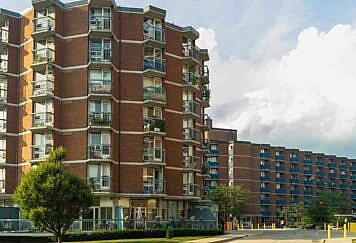An average PC user faces a plethora of problems while using his computer in daily life. Some of these problems are specific and require technical support, whereas some of them are common PC problems that can be fixed by a PC user easily. It is not advisable to spend money and call for technical support in common PC problems.
If you face a specific problem that requires technical support, many start-ups and companies provide computer repairs in Australia.
Here are the top 5 common problems every PC user faces and what can he/she do to solve them.
Blue Screen of Death (BSOD)
The blue screen of death is always a horrifying sight, and it is one of the most common problems occurring in a PC. It is a fatal error and indicates a system crash in Windows.
There are many causes for BSOD, and it is pretty easy to identify the cause. When a blue screen appears, mini-dump files are automatically generated by windows that contain the information about the crash.
Possible Causes:
- Faulty RAM
- Updated Drivers
- Driver or Hardware Conflict
- Logs, Temperature, and Memory Problems
Recommended Solutions:
- Take a look at the dump file to identify the cause of the error
- Update hardware drivers
- Update the RAM according to the problem
- Clear the logs
Desired Software/Application is Not Getting Installed
This particular problem seems to be a nightmare when we require our desired software/application. Almost everyone who uses a computer might have faced this error.
In most cases, the installation of software/application is carried out smoothly. The problem occurs if the app installer settings have restrictions that won’t allow you to install the software.
Possible Causes:
- Not having enough drive space
- A newer version of the software has already been installed
- The prerequisite software is not installed
- The desired software/application is not compatible with the OS
Recommended Solutions:
- Rebooting your system (if the cause is a temporary glitch)
- Free up some space on the hard drive
- Check previously installed software
- Make sure every prerequisite is installed
- Acquire compatible OS
- Take a look at the antivirus settings
- Try running the installer as an administrator
Software or OS is Running Slow
Any user will be frustrated if his/her computer is not running at the desired speed. This is one of the most common problems for a PC user.
The primary reason for this particular problem is that a plethora of programs or browser tabs are open. In this modern era, multitasking is done by everyone, but your system might not support it.
Possible Causes:
- Lack of resources (RAM, CPU, Hard drive)
- Virus/Malware infection
- Missing updates
- Applications open automatically as you start your PC
Recommended Solutions:
- Open task manager and manage RAM and virtual memory allocation
- Adjust virtual memory if it is necessary
- Check CPU usage levels
- Free up your hard drive space
- Perform full system scan for viruses and malware
- Install all the necessary updates of the computer
- You can upgrade to SSD storage to boost performance
Applications or Computer Behaves Abnormally
Sometimes particular software keeps on crashing, and there are problems with missing files, and even the overall speed of the computer decreases. It may be possible that the software crashes because of its code, and there is no problem with your PC.
Possible causes:
- An inherent problem in software’s code
- Virus/Malware infection
- The hard drive is going bad
- The computer gets too heated
Recommended Solutions:
- Run a virus scan on your PC
- Check Windows System logs for NTFS system errors or other HD-related logs
- Replace your hard drive if necessary
- Try using a coolant fan (if your PC heats up!)
The PC is not turning on!
I guarantee that every PC user has faced this problem at least once in his/her life. This is the most common PC problem that can occur on any computer. This may seem a common problem, but it can get on your nerves.
Possible causes:
- Incorrect power supply
- Improper connection of hardware
- Faulty motherboard
- Other faulty/damaged hardware components. (Processor, RAM, hard drive, disc drive, and some more)
Recommended Solutions:
- Replace faulty hardware
- Ensure proper hardware connection
- Check your power supply
Follow TechStrange for more Technology, Business and Digital Marketing News.





